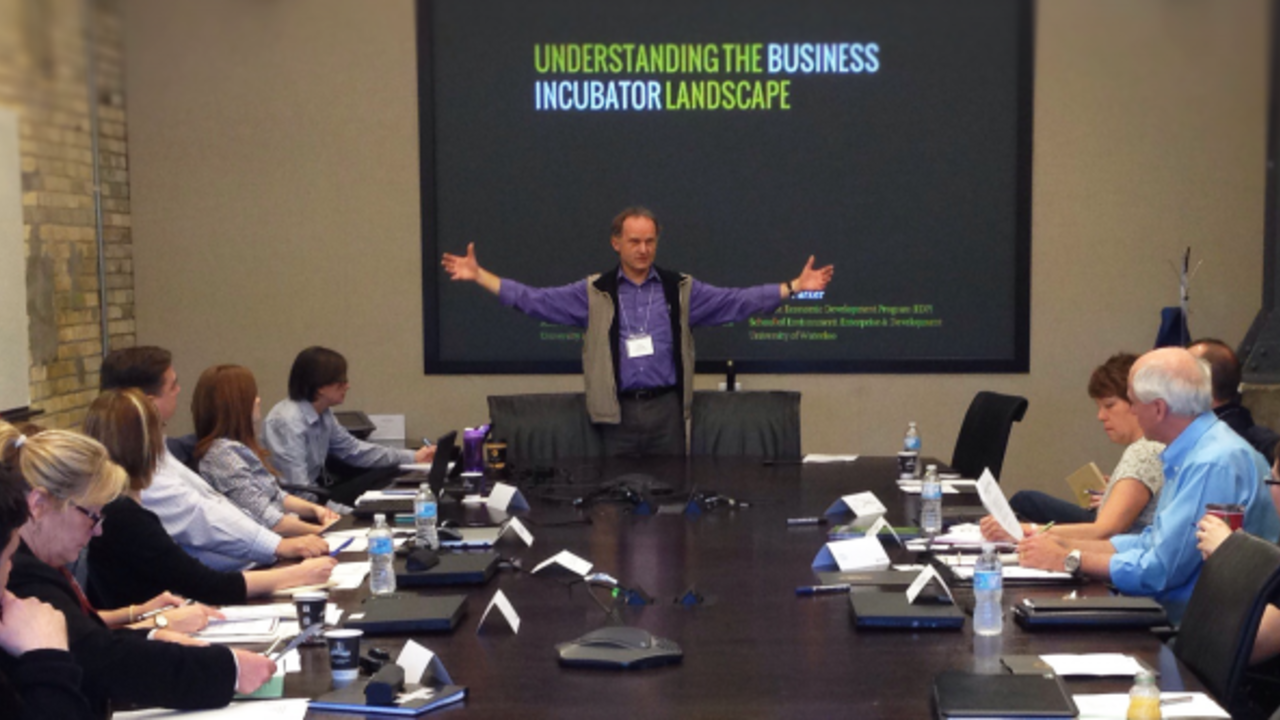
Waterloo and EDAC celebrate 50 years of partnership
The partnership creates learning opportunities and delivers training in every province and territory with programs tailored to local needs

The partnership creates learning opportunities and delivers training in every province and territory with programs tailored to local needs
By Jude Okonkwo Faculty of EnvironmentThe University of Waterloo and the Economic Developers Association of Canada (EDAC) are hosting their 50th anniversary banquet on June 2, 2022, to celebrate their partnership and accomplishments.
Since the launch of the partnership at Waterloo in 1972, it has provided learning opportunities for over 12,000 economic development professionals from over 500 communities across Canada.
With the increasing demand from professionals and the need to address the economic and sustainability challenges that Canadian communities are facing, the Economic Development Program (EDP) that was borne from the partnership has continued to expand and grow the range of topics being offered and has improved access to training for the growing audience.
“Both EDAC and Waterloo agree that we must ensure the program, first and foremost, is relevant, accessible to all, and provides a deep understanding of economic development processes with a uniquely Canadian focus,” said Penny Gardiner, chief executive officer, EDAC.
EDAC through the EDP partnership has been delivering on its mission to be the national source of professional standards, economic development knowledge and most effective method of exchanging ideas.
“For the past 50 years, the University of Waterloo has educated economic development professionals on the concepts and practices they need to successfully build their local economies,” said Aileen Murray, former president of EDAC. “EDAC is proud to celebrate these 50 years of partnership with the University of Waterloo and recognize the incredible contribution of the economic development program to our profession and, as a result, to the economic prosperity of the entire country.”
The partnership offers training, networking opportunities, professional development and an extensive list of resources that benefit economic developers and their municipal, provincial, federal, corporate, non-profit and Indigenous employers and contribute to Canada’s well-being.
In addition, the program has delivered training in every province and territory with programs tailored to local needs.
“We recognize that it is quite a feat for any organization to have such a long-standing partnership. However, when you have two parties that are committed in their direction and have a working relationship that is both respectful and friendly - it is a pleasure, not a task,” said Gardiner.
The program is successful due to many influential contributors. These include past and present directors of the program, David Walker (1972-1985), Chris Bryant (1985-1991), Jim Bater (1991-2008), and Paul Parker (2008-).
“The team that has made the program a nimble and evolving success over five decades includes 10 assistant directors, six staff members, 20 EDAC Course Committee Members, 30 instructors from Waterloo, as well as dozens of instructors from EDAC membership and the profession,” said Paul Parker, professor and director of EDP at Waterloo.
The celebration will feature a few speakers who have made the program an outstanding success over its 50 years and will be held at the Federation Hall, Waterloo.

Read more
Here are the people and events behind some of this year’s most compelling Waterloo stories

Read more
Discover how Waterloo alumni are driving Canada’s economy with five tech companies making a local and global impact

Read more
Meet the five exceptional graduate students taking the convocation stage as Class of 2024 valedictorians
The University of Waterloo acknowledges that much of our work takes place on the traditional territory of the Neutral, Anishinaabeg, and Haudenosaunee peoples. Our main campus is situated on the Haldimand Tract, the land granted to the Six Nations that includes six miles on each side of the Grand River. Our active work toward reconciliation takes place across our campuses through research, learning, teaching, and community building, and is co-ordinated within the Office of Indigenous Relations.